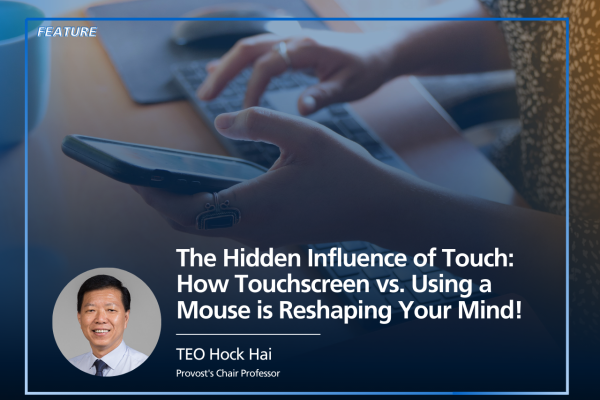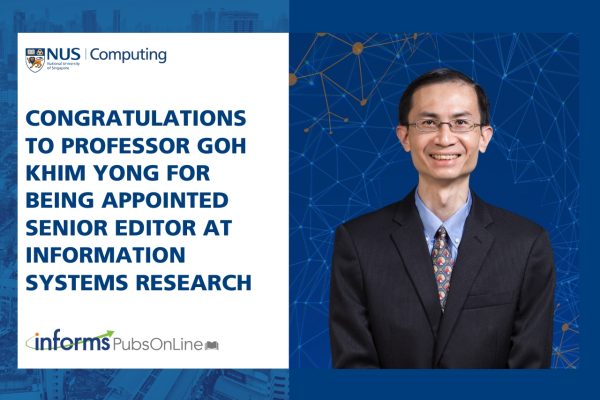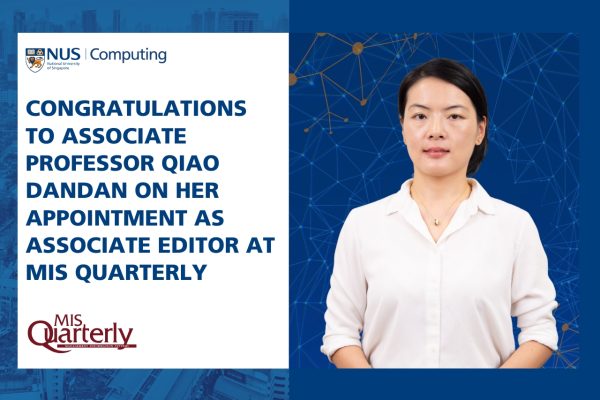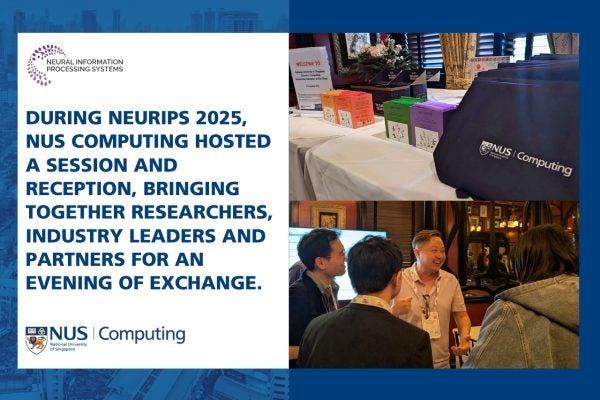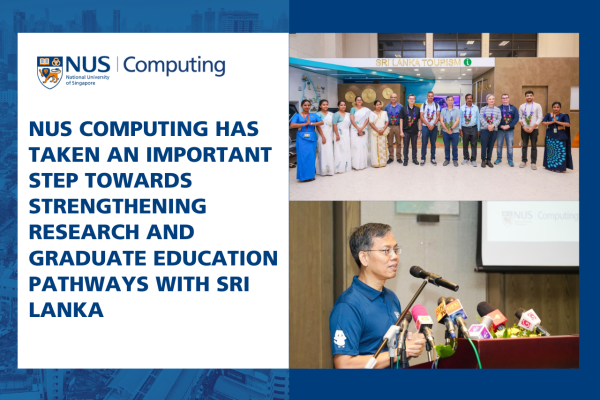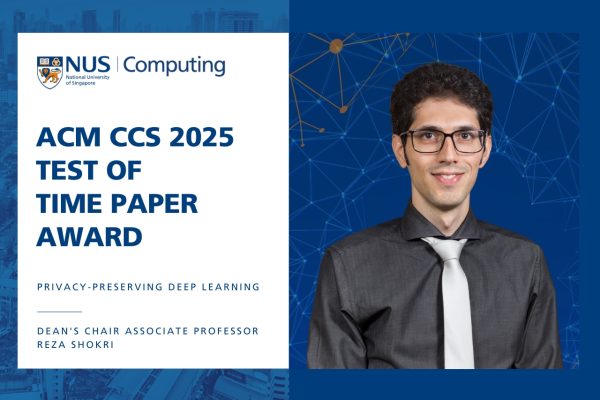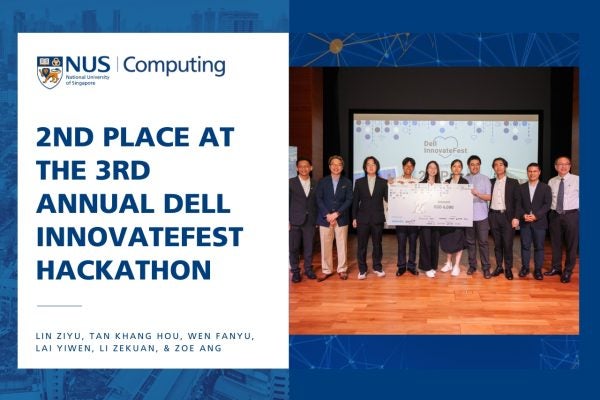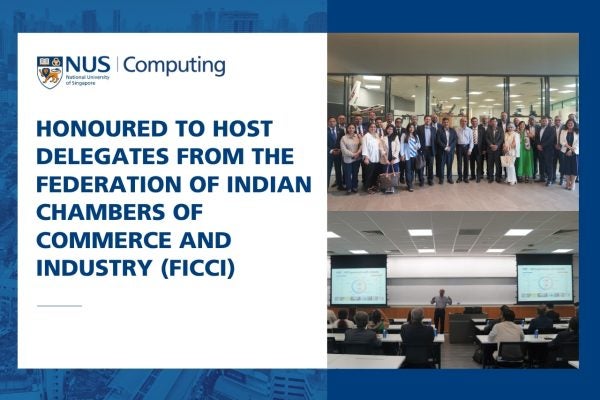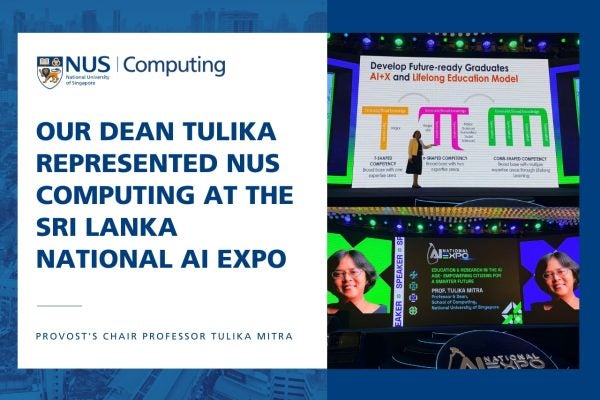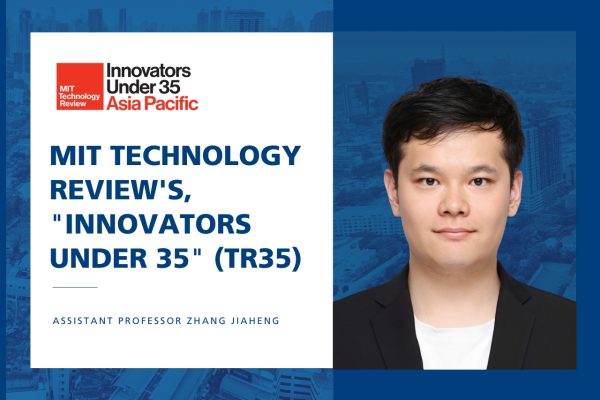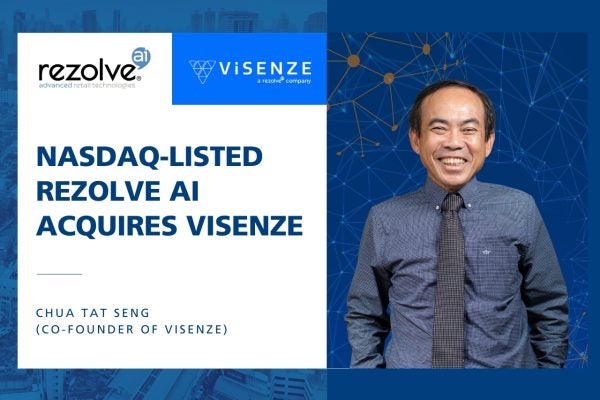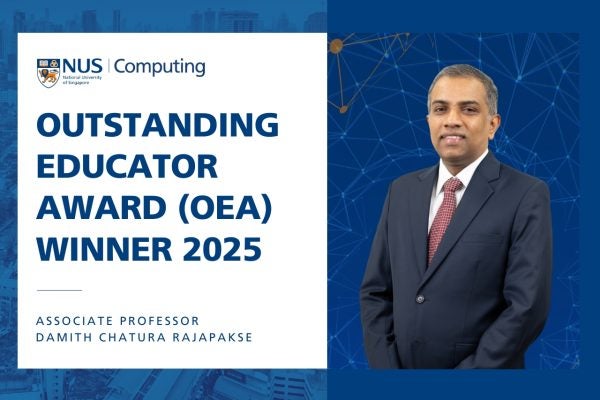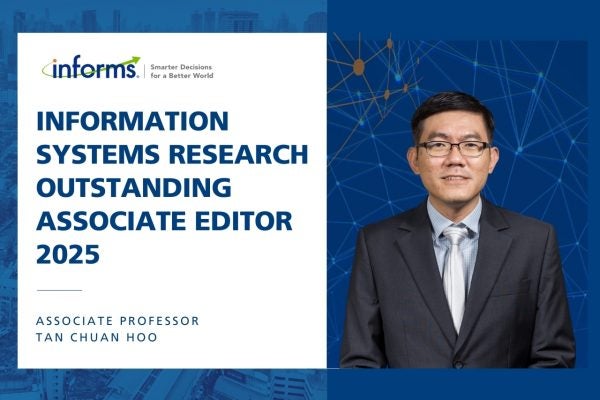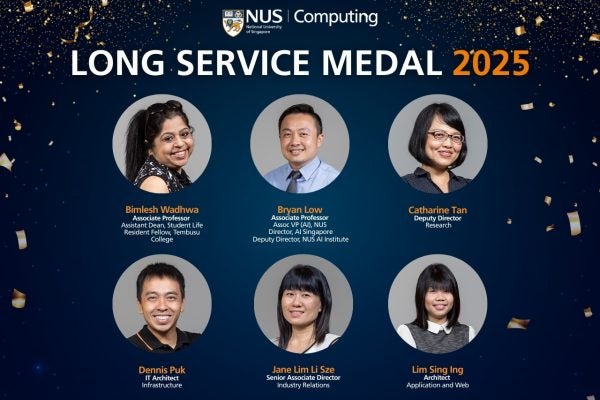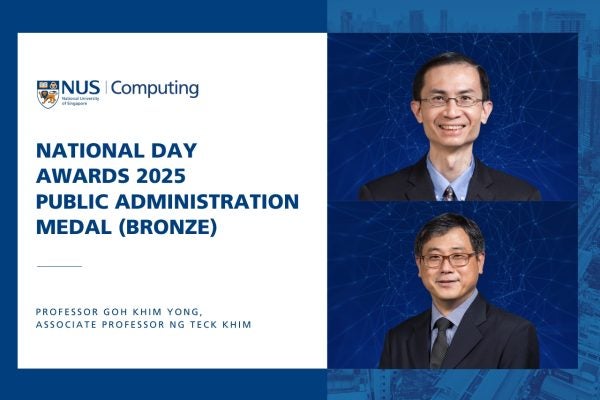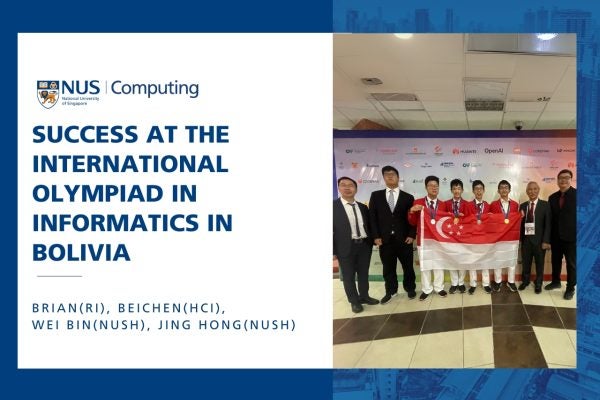Filtered by: Faculty
27 January 2026
You probably don’t even notice it anymore. One moment you’re scrolling through Instagram on your phone, the next you’re clicking a mouse on your laptop to finish a work document. We transition between digital devices with barely a thought. But what if those seemingly small physical differences, like the direct tap of your finger on a touchscreen versus the indirect click of a mouse, are not so small after all?
14 January 2026
Join us in congratulating Professor Goh Khim Yong on his appointment as Senior Editor of Information Systems Research, one of the leading journals in the field of Information Systems.
12 January 2026
We are pleased to announce that Associate Prof Qiao Dandan has been appointed Associate Editor at MIS Quarterly, one of the leading journals in the field of Information Systems.
29 December 2025
During NeurIPS week on 4 December, NUS Computing hosted its first network session and reception in San Diego, bringing together researchers, industry leaders, and partners for an evening of exchange and connection.
25 November 2025
NUS Computing has taken an important step towards strengthening research and graduate education pathways with Sri Lanka. In January 2025, Assoc Prof Suranga Nanayakkara initiated a Memorandum of Understanding (MoU) between the National University of Singapore and the Ministry of Education, Sri Lanka — an effort that was formalised by both parties within a remarkable five months.
17 October 2025
Professor Prateek Saxena from the National University of Singapore (NUS) School of Computing has been awarded the ACM CCS 2025 Test-of-Time Award for the paper “Demystifying Incentives in the Consensus Computer”, authored with Loi Luu, Jason Teutsch, and Raghav Kulkarni.
17 October 2025
Professor Reza Shokri from the NUS School of Computing and Google Research has been awarded the ACM CCS 2025 Test-of-Time Award for his work on “Privacy-Preserving Deep Learning,” co-authored with Professor Vitaly Shmatikov. This prestigious award recognises research that has had a profound and enduring influence on the field of privacy in AI.
15 October 2025
A team of NUS School of Computing (SoC) students, assembled by the Centre for Computing for Social Good and Philanthropy (CCSGP), competed in the 3rd annual Dell InnovateFest Hackathon on 29 August.
10 October 2025
NUS Computing was honoured to host delegates from the Federation of Indian Chambers of Commerce and Industry (FICCI)
7 October 2025
The NUS Computing Master’s Expo & Industry Day is an annual showcase celebrating the breadth and diversity of student work across the School of Computing’s graduate programmes at the National University of Singapore (NUS).

